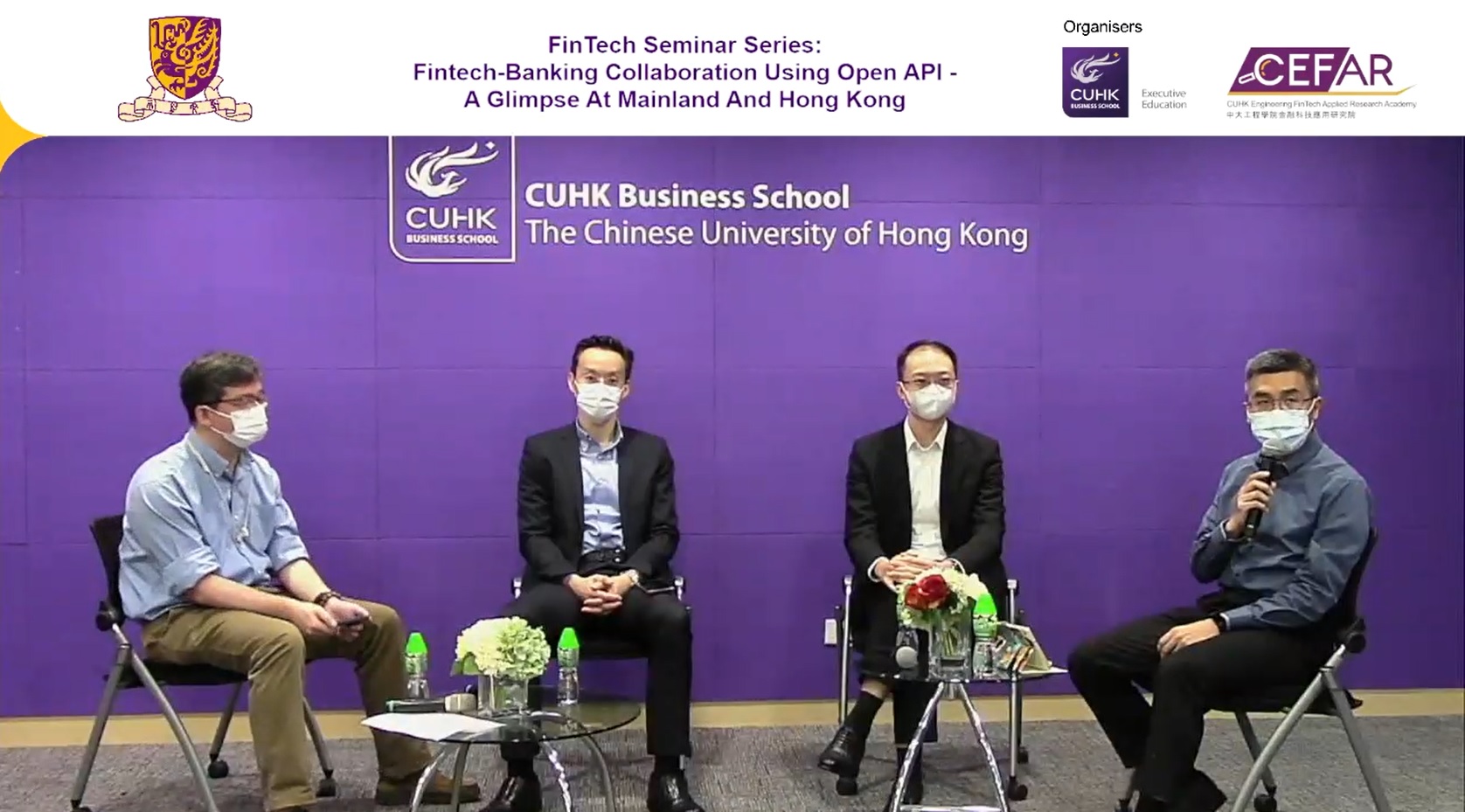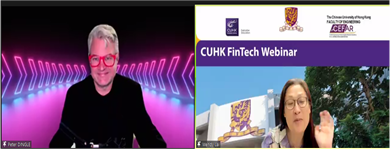Introduction - How Web3, FinTech And Tokens Are Re-Inventing The World
The future of money is rapidly evolving as society shifts from a physical economy to an increasingly digital one.
From the metaverse’s increasing popularity to the democratization of money, innovation is clearly disrupting the traditional notion of money. This disruption is changing the way we commonly ‘make’, ‘spend’ and ‘manage’ money.
In this seminar, the speaker, Peter shared the ways of how large organisations applied for the technology evolution, followed by a fireside chat with Prof. Chun Kwong Chan, to discuss some of the interesting questions raised out from the participants.
Key takeaway from the seminar
Peter started with a history about how currencies and technologies came along over the years, of which the changes had accelerated significantly especially in the past two years, from new tokens to new currencies and ventures into the growth of FinTech for HSBC, supported with the examples of HSBC sponsoring multiple digital brands experience. With HSBC adopting new technologies and driving innovation, this enabled us to sample and learn our ways of living and banking with new technologies, continuing to maintain the trust as a customers, as a business or as a government service provider.
How we are Digital Today
Digitalization has been progressively penetrating and changing the banking landscape. From facilitating the establishment of a new bank account, HSBC has launched a mobile banking experience which enabled customers to open a new account in less than five minutes, to the launch of PayMe digital wallet technology that allow people to have the easy invest technology through HSBC Reward+. With effective multi-currencies (e.g. 28 different currencies) in PayMe wallet, this enabled customers to move money and transact without boundary and limitation of platforms and formats of payments. This enables HSBC businesses to grow with an advantage of competitiveness world globally today.
Significant Business: Mobile Banking
Currently HSBC deals with over 1.2 billion logins on the personal banking mobile app, of which 53% of them engaged with HSBC via the mobile app on a monthly basis, and over 95% of the retail banking transactions are done electronically. Especially, in recent two years, it has been accelerated by the need of people working from home while working remotely from home.
Moreover, Peter shared finance innovation in 22 areas, of which he called it “22 for 22” (some of the inspiring items are listed below)
- Currency— All currency is money, but not all money is currency.
- Growth— “Learn how to grow. In every way you can. Anything that doesn’t grow, dies.”
- Storability—There is a saying that if you don’t own your keys, you don’t own anything. There is also a demand from real customers who want a safe place to put their money and protection from things that can go wrong. Fraud has exploded in the last few years thanks to digitization.
- Blockchain—A database that is managed autonomously using a peer to per network, and a timestamping server to run a Ledger, and recording transactions.
- Tokens— “Every crypto is a token, but not every token is a crypto”. Tokens have been serving as a visible or tangible representation of a fact, quality, feeling for many years.
Q & A highlights:
This is about Proof of Stake in the Ethereum Network. Won’t this validation process centralize even further ETH?
Peter answered that they're trying to drive with proof of stake on a theorem is not centralization versus decentralization though it is the other big complaint. Nobody likes to do transactions where the cost of the transaction outweighs the cost of the asset. These protocols start to evolve and develop, as they deal with the different limitations that they have based on their decentralized or centralized nature, they're always trying to evolve and create platforms for amazing new use cases. He added that it's going beyond just the speculative asset of putting all people’s money into coin that can be used for trading.
What do you think if some people say that cryptocurrency promote illegal activities for example, selling drugs and, money laundering?
Peter believed that the fact that technologies could have both benevolent and malevolent use. It's safer to do a transaction in fiat currency than it is to do with a current transaction with Bitcoin as people can decode and identify using forensic means, such as the IP addresses and the wallets of a blockchain network is much easier to trace than the use of fiat currency.



















































